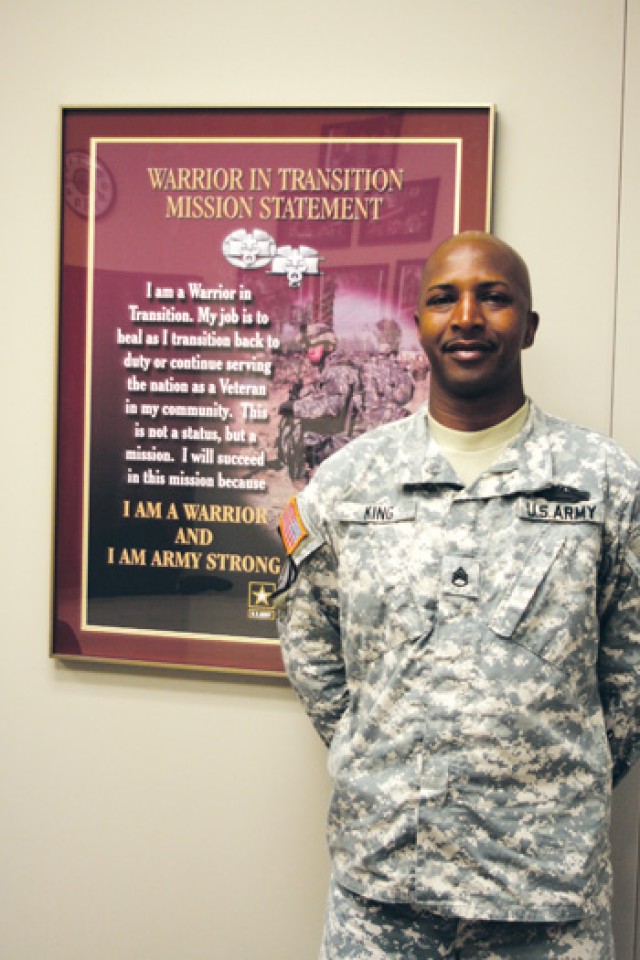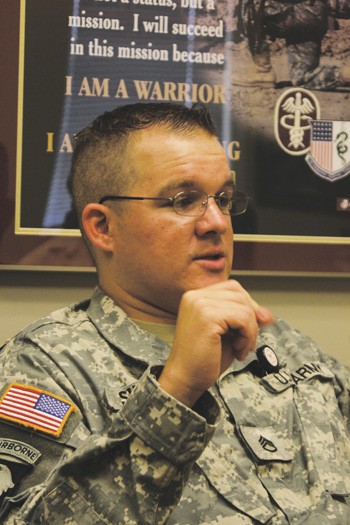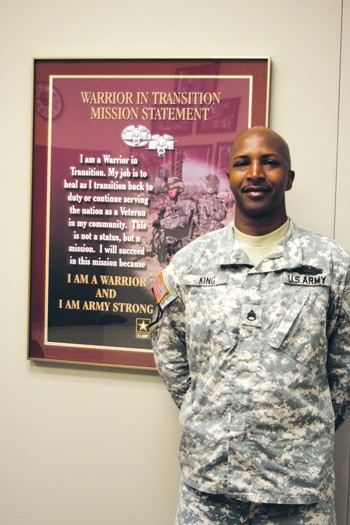Suck it up and drive on
That's the soldier's motto. But what happens when they get home from combat and find they need help with more than just physical wounds'
BY ERIC JOHNSON
AUGUSTA, GA - When you hear that Thunder Over Augusta is honoring our Wounded Warriors, your mind probably conjures up images of amputees.
Soldiers always return from combat missing something, and when it's a foot or an arm or a leg, it's easier for the rest of us to understand. We can't really understand, of course, but we can imagine what it must be like to have a piece of us so horribly, permanently gone.
And while Fort Gordon's Eisenhower Army Medical Center and the VA's Active Duty Rehab Unit are both far too full of soldiers with those obvious injuries, our current wars are sending home thousands of warriors with wounds like traumatic brain injury (TBI) and post traumatic stress disorder (PTSD) that aren't quite so noticeable.
According to the Defense and Veterans Brain Injury Center, approximately a third of patients treated for battle-related injuries in 2008 suffered from TBI, and while the U.S.
Army Medical Department's Office of the Surgeon General cautions against calling TBI the "signature injury" of our current wars, it's tough not to think of it that way.
Until recently, treatment for TBI and PTSD amounted to little more than a slap on the back and a push toward the battlefield.
Suck it up and drive on.
Now, thanks to the Warrior Transition Brigade, that attitude is starting to change.
Though Staff Sergeant Terry King has been deployed five times to various hotspots around the world - Baghdad, Bosnia, Saudi Arabia, Kuwait - he wears his mileage relatively well.
"I've walked in Saudi Arabia," he says proudly. "I walked up the hillsides of Bosnia. I'm Infantry."
Because of all that walking, his knees are shot, and though he also deals with back issues, many of his most lasting scars are invisible.
"A lot of the things I dealt with still come back to haunt me," he says. "Some things I deal with mentally are challenging."
In spite of these burdens, the 17-year veteran has no desire to leave the Army. In fact, he's signed waiver after waiver to soldier on.
"The second time I went to Iraq, they wanted me out," he says. "They're like, 'Oh - you don't need to go back,' but I'm like - these are my guys. They're like my brothers, and I'm not going to let my brothers go somewhere and not be there to protect them."
Now, while undergoing his physical and mental rehabilitation, he helps the newly arriving wounded settle in over at Fort Gordon, but before being sent stateside early last December, King ran convoy escort missions in Iraq, grueling five- to seven-day trips spent protecting 100 to 150 semi-trucks full of supplies.
In a mission like this, every patrol vehicle is responsible for 10-15 of the convoy's trucks, but since semis aren't necessarily designed to run balls-out in the sand and heat, that ratio can change in a heartbeat. No matter what happens to any single truck, the convoy will never stop.
Suck it up and drive on.
When one of the semis goes down, two escort vehicles pull back to give the disabled vehicle more protection, which then leaves each of those left defending the convoy responsible for about 30 trucks.
And, of course, all this is going on while taking fire and dealing with the improvised explosive devices (IEDs) left for them by local insurgents.
While King says conditions along the roads are getting better, military hospitals around the country are still filling with casualties whose wounds go far deeper than flesh and bone.
"When I came back the first time, five guys from my unit killed themselves," King says.
"You come back home and meet with the doctors, but you're not the same. You're thinking you're the same because you've survived all this time doing what you have to do, and you're used to it. You're more to yourself about a lot of things, but they're telling you it's fine - it'll be OK in a couple of months."
Suck it up and drive on.
This time, thanks to the Warrior Transition Battalion, King is finding that things are different. So far, only two guys from his unit have killed themselves, and if that seems like a gruesomely modest gain, it's a gain nevertheless.
"Now, coming off this one, you bring up a health issue you have and they're paying close attention to it," he says. "The help is there for you."
That help is coordinated in part by Staff Sergeant Showers, a former Wounded Warrior who's now a squad leader at the VA's Active Duty Rehab Unit.
As squad leader, he's part of a triad that also includes the soldier's nurse case manager and the medical doctor/care team. Together, they meet about once a week to discuss the individual soldier's progress.
"We don't want a soldier leaving here not getting the best care possible," Showers says.
The Warrior Transition Battalion, which started out as the Warrior Transition Unit around 2005, is a way to help wounded soldiers transition to their post-injury futures. Sometimes that means transitioning back to their units, sometimes that means transitioning into a new military job and sometimes that means transitioning out of the military altogether.
For Showers, who says he had a run in with a couple of roadside bombs that left him with a broken ankle, a torn knee and medium to severe TBI, that transition has brought him into a leadership position within the triad, and since he's been through the program himself, he knows what the soldiers are going through, especially the TBI.
"I'll never be fully healed, but it will get better over time," he says. "You break your ankle, you have a linear progression of healing, but TBI just doesn't work that way."
When Master Sergeant Royce W. Harvey, a 30-year veteran, arrived at the Eisenhower Medical Center, he couldn't function because of his TBI, and while he still has short-term memory issues, he feels like he's getting better thanks to the program.
"They give you tools and help you develop tools to work through those issues."
Initially injured in Iraq in 2007, his TBI and his PTSD symptoms weren't addressed until he was flown out of Afghanistan in November of 2008.
Because of his multiple hospitalizations, he's seen the program change and adapt, and he says the quality and depth of the care is definitely improving.
"You went from having case managers who were overloaded and had more soldiers than they could really effectively keep up with and a process of dealing with wounded soldiers with special needs that..."
His TBI causes him to get a little lost in the complexity of his sentence structure, but the implication is obvious: Things are better than they were, and while all admit it's far from perfect, Sergeants King, Showers and Harvey insist they are proof that things are moving in the right direction.




Social Sharing